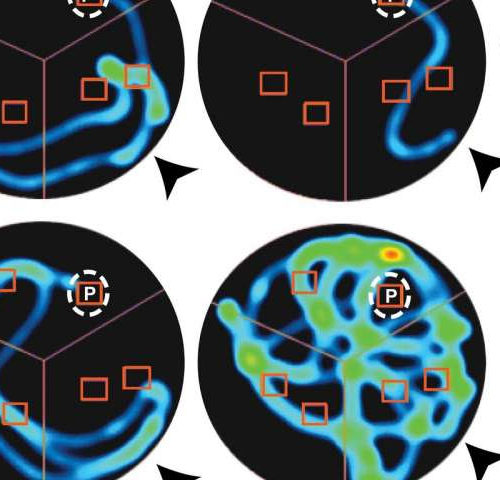by Iqbal Pittalwala, University of California – Riverside A study examining the effect of the immune receptor known as Toll-like Receptor 4, or TLR4, on how memory functions in both the normal and injured brain has found vastly different cellular pathways contribute to the receptor’s effects on excitability in the uninjured and injured brain. Further,...
Tag: <span>Brain injury</span>
Simple ‘sniff test’ reliably predicts recovery of severely brain injured patients
The ability to detect smells predicts recovery and long-term survival in patients who have suffered severe brain injury, a new study has found. A simple, inexpensive ‘sniff test’ could help doctors to accurately diagnose and determine treatment plans for patients with disorders of consciousness. Published today in the journal Nature, the study involved brain injured...
High density EEG produces dynamic image of brain signal source
by Carnegie Mellon University Marking a major milestone on the path to meeting the objectives of the NIH BRAIN initiative, research by Carnegie Mellon’s Biomedical Engineering Department Head Bin He advances high-density electroencephalography (EEG) as the future paradigm for dynamic functional neuroimaging. The NIH Brain Research through Advancing Innovative Neurotechnologies (BRAIN) Initiative motivates researchers to...
Can brain injury from boxing, MMA be measured?
by American Academy of Neurology For boxers and mixed martial arts (MMA) fighters, is there a safe level of exposure to head trauma? A new study shows different effects in the brain for younger, current fighters compared to older, retired fighters. The study is published in the December 23, 2019, online issue of Neurology, the medical journal...
A small electrical zap to the brain could help you retrieve a forgotten memory
by Stuart Wolpert, University of California, Los Angeles A study by UCLA psychologists provides strong evidence that a certain region of the brain plays a critical role in memoryrecall. The research, published in the Journal of Cognitive Neuroscience, also shows for the first time that using an electrical current to stimulate that region, the left rostrolateral prefrontal cortex, improves people’s...
For civilians, finding a therapist skilled in PTSD treatments is a tough task
by Caroline Covington Lauren Walls has lived with panic attacks, nightmares and flashbacks for years. The 26-year-old San Antonio teacher sought help from a variety of mental health professionals—including spending five years and at least $20,000 with one therapist who used a Christian-faith-based approach, viewing her condition as part of a spiritual weakness that could...
Mouse study reveals that activity, not rest, speeds recovery after brain injury
When recovering from a brain injury, getting back in the swing of things may be more effective than a prolonged period of rest, according to a new Columbia study in mice. These findings offer a compelling example of the brain’s remarkable capacity to adapt in response to trauma. They also point to new, activity-centered treatment...
New guidelines for traumatic brain injury — Built with input from rehabilitation professionals
Journal of Head Trauma Rehabilitation presents clinical practice guideline for moderate to severe TBI WOLTERS KLUWER HEALTH September 7, 2018 – Clinical practice guidelines play a critical role in promoting quality care for patients with traumatic brain injury (TBI). A new set of guidelines for rehabilitation of patients with moderate to severe TBI – incorporating insights from the...
A brain injury diagnosed with a single drop of blood
UNIGE researchers have developed a portable device capable of diagnosing within ten minutes of mild traumatic brain injury, using a single drop of blood. UNIVERSITÉ DE GENÈVE Every year in Europe, three million people are admitted into hospitals for suspected mild traumatic brain injury (mTBI) cases. Yet 90% of these patients will be able to return home...
Study reveals gaps in follow-up care after concussion
NIH/NATIONAL INSTITUTE OF NEUROLOGICAL DISORDERS AND STROKE Being discharged from a hospital trauma center after receiving treatment for a traumatic brain injury (TBI) does not necessarily mean that a patient has fully recovered. TBI can lead to long-lasting physical and cognitive symptoms, but a new study in JAMA Network Open suggests that many patients may not be...

